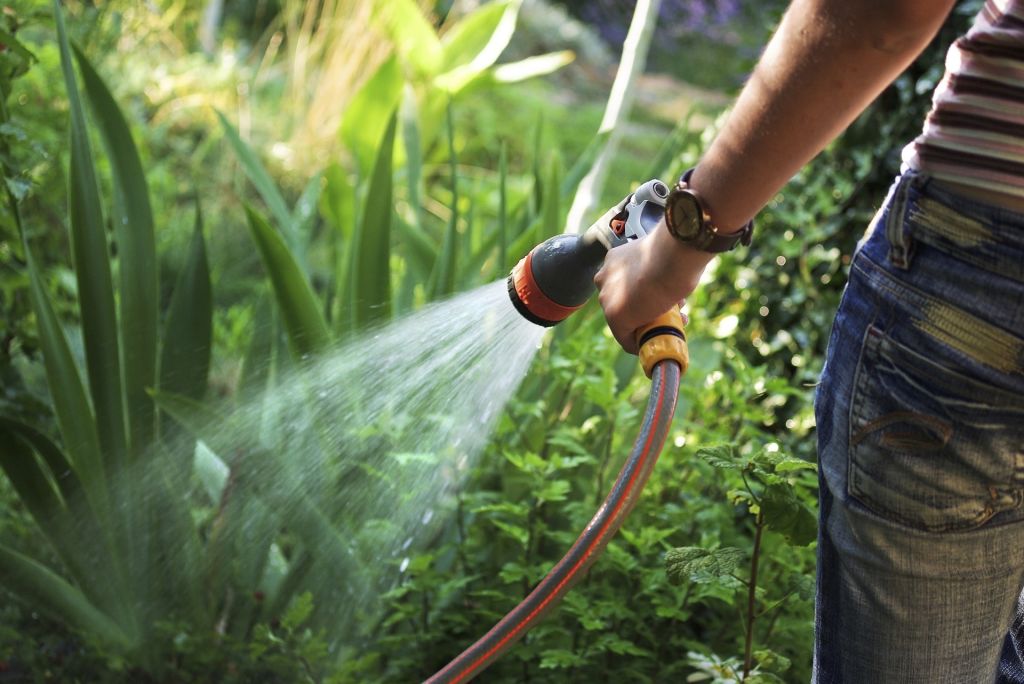How to protect your garden in summer

Australia isn’t called the sunburnt country for nothing and with much of the landscape experiencing drought-like conditions in the summer months how your garden fairs will be determined by your level of ‘green thumb’ tender loving care.
Award-winning horticulturist Matthew Carroll works with the Nursery & Garden Industry Australia promoting the many benefits of plants, and is founder of the gardening blog Hortiman and creator of Hortipedia, an online gardening resource. Carroll possesses a wealth of knowledge when it comes to local gardening practices and offers his top tips on beating summer’s major gardening challenges.
From good and bad garden insects to the right types of mulch and fertiliser, we have your garden needs covered.
Q. What are the major summer garden challenges?
A. Summer can be a tough season in the garden. With higher temperatures comes an increase in water needs and pest populations, as well as ‘wear and tear’ on areas like lawns as people spend more time enjoying their backyards. While we can’t control the weather, we can help to mitigate any negative effects it can have on our gardens.
Q. How can we tackle common summer pests?
A. With populations of insect pests typically exploding over the warmer months it is important to regularly check your treasured plants for early signs of attack. This can be done while watering or simply by taking a relaxing stroll in the garden in the morning or evening.
Pests including aphids and caterpillars can be removed by hand while thrips and mites will require a spray to control population explosions.
When selecting a spray look for one that poses minimal threat to beneficial bugs that help to rein in pest populations by feeding on them. Your local garden centre should be able to steer you in the right direction. Beneficial bugs include good mites, lady beetles, praying mantis and even wasps. You can actually buy beneficial bugs for your backyard. Check out Eco Organic Garden.
Q. Is mulch important and should it be applied?
A. Mulch is an important part of every garden, especially over summer. The type you choose will depend mainly on the type of garden you have, as well as the time and effort you are willing to expend.
Gardens that are regularly tended and planted such as vegetable patches and flowerbeds are best mulched with sugarcane, pea straw or lucerne. These mulches will slowly degrade, eventually working their way into your soil and adding to its organic matter. For this reason they will require regular topping up over the year, but they are worth it.
Those looking for a longer-term (but not nearly as effective) mulching solution can choose ‘woodier’ mulches such as pine bark and chips, or even inorganic options such as gravels and pebbles. These add little (if anything) nutritionally to the soil but they do help to insulate it and also inhibit weed growth.
Q. Is ground cover a good alternative to mulch?
A. A living groundcover will aid in protecting the soil from exposure and erosion while also helping to inhibit weed growth. Ground-covering perennials such as native violets, fan-flowers (Scaevola) and Brachyscome can be used in a native garden. Other living mulches can include scented prostrate herbs and matting succulents such as sedums – it all depends on the climate and aspect.
Q. Are there fertilisers that are better suited to the summer heat?
A. Using too much fertiliser over the summer months can stress plants, especially if there isn’t sufficient water. Over summer, use ‘controlled release’ forms of complete fertilisers or organic-based foods that naturally feed the plants over an extended time.
Q. How can gardeners get the most out of their water usage?
A. The general message to gardeners is to water deeper, but less frequently in the morning or evening. Your soil and plant types play a role in determining exactly what is right for your garden.
Sandy soil requires more frequent, shorter watering times than heavier soil due to the fact that it cannot retain as much moisture. The water-holding capacity of sandy soil can be greatly increased by adding organic matter such as compost and manure. Take a sample to your local garden centre if you are not sure what type of soil you have and get advice on how best to improve it.
You might also like to look into the many irrigation technologies now available to make watering both easier and more water efficient. Check out www.smartwatermark.org
Q. What steps should gardeners take in preparation for next summer?
A. The heat of summer is the ideal time to ask yourself “Where do I wish I had planted a shade tree 5-10 years ago.” Track the sun to see where a tree could help to cool spaces such as bedrooms and entertaining area, or even help to improve the efficiency of your air-conditioning unit.
Q. Final summer gardening tips?
A. Choosing plants suited to your local climate will always make life easier over summer. This doesn’t mean you will be limited to native plants as many exotics are also highly suitable to various Australian climates and gardens – provided they are non-invasive. Your local garden centre is always your best resource when it comes to selecting the right plant for your garden.
We recommend
We thought you might like
States
Capital Cities
Capital Cities - Rentals
Popular Areas
Allhomes
More







